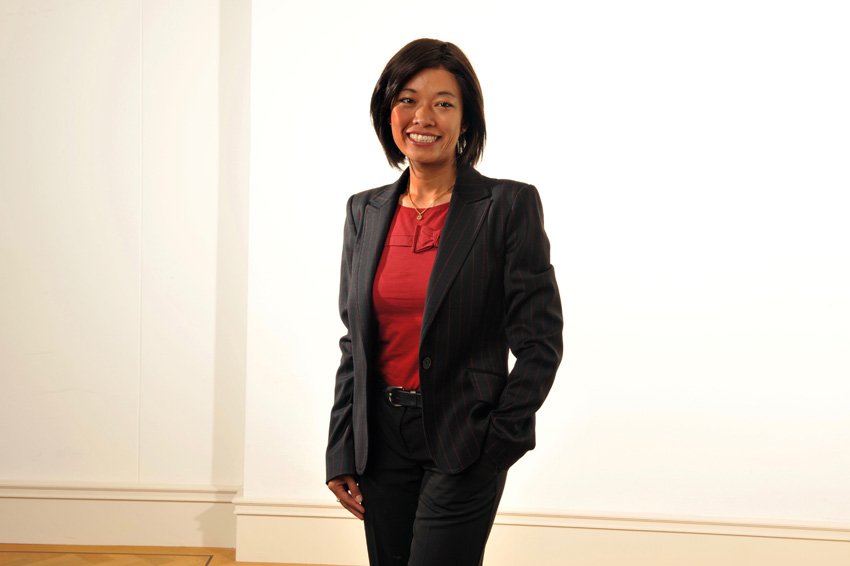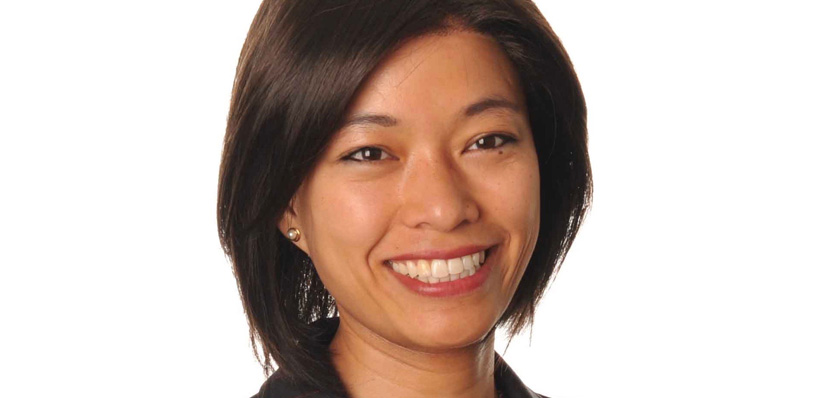
ML: What attracted you to the field of Social and Environmental Impact Investments?
YG: Let me explain the ecosystem to see where we sit. I had been in clean technology investments since 2008, coming from a business and engineering technical environment background, and wanting to do something more directly to improve the world. I had an opportunity to join a venture capital fund investing in clean technology companies. That was my first experience stepping into environmental impact investments, it was called clean technology at the time, a term we still use a lot today.
ML: How did your path lead to your current post with the European Investment Fund (EIF) as Head of Social & Environmental Impact Investments, Technology & Innovation?
YG: After seven years with a clean technology firm, for personal reasons, I decided that I wanted to set up my own impact fund. Clean Tech had been a good entry for someone with an engineering background. There was also the business side, and combining it with technology knowledge is quite important when you enter clean tech, so that was my added value. And I was personally much more motivated with my own fund because there were other broader social issues, not just environmental ones that could be addressed. The fund didn’t work out as planned.
At the time, EIF was looking for someone in the investments department, and as I knew a big portion of the team already and would be happy to work with them, I moved to the EIF.
EIF invests in venture capital funds – not direct investments – which in turn is invested into companies. I’d been on the other side of the table twice, with the clean technology fund and the social fund, and I was quite intrigued about what was happening on this side since you can have a much bigger impact, not just due to the scale but also because you have a view of the whole European landscape.
I joined as an investment manager two years ago, then very quickly a vacancy came up for head of the unit for social and environmental impact.
ML: In your own words define social venturing.
YG: It’s a blend between social issues and applying entrepreneurship, with its business skill set and efficiency, to solve that issue.
ML: Do you see Europe as a whole taking responsibility in terms of societal and environmental development?
YG: Yes, but this is not something new. Europe has a strong history; people care about the environment and social matters. Impact investing is a recent term, and the way the issue is being addressed is changing, as we see with many European governments who’ve had to economise on their social costs because the way they were approaching it was not sustainable.
Today we are moving out of subsidies, grants and donations and we need to find different ways of funding the solutions. Getting private money involved and using the knowledge and skills coming from the private sector in addressing social matters … that’s the change.
ML: What are some of the key societal problems that need to be addressed?
YG: Social inclusion is one of the major issues in Europe and in the US. Also, the problem of how to resolve societal issues that, historically, were solved by government but can no longer continue to be. From how to help people who are unable to join a normal work force due to a handicap – the places where the government would enable them to work are all being closed – to care for the elderly. Innovation and social entrepreneurship in general are topics that EIF aims to encourage, amongst other with innovative financial instruments.
ML: How does social investment come into play?
YG: Let me first tell you a little about the European Investment Fund. We are the investment arm for SMEs, within the European Investment Bank Group that helps to execute the European Commission’s policy mission. The European Commission has certain policy objectives, the European Investment Bank does the lending and we do the investment part. So we don’t exactly advise governments, but we would give feedback on the markets to the European Commission.
To give you a tangible example, we are currently working on funding a payment-by-result scheme, in other words, a social impact bond, which would finance interventions to help bring refugees and migrants into employment. Once migrants are employed, they gain in self-esteem and start contributing to society, instead of asking from society. This also helps avoid problems from the younger generation being out on the streets feeling useless. The payment-by-result scheme would target bringing these people into employment as soon as possible so that they could take care of themselves, but this is not something we can do alone, it needs be structured. Thanks to the new “EFSI” – the European Fund for Strategic Investments –launched by the European Commission and the EIB jointly, we will be able to fund payment-by-result scheme pilots for the first time in EIF’s history, as well as co-invest alongside socially oriented business angels and accelerator-linked funds.
In terms of an aging society, there’s the social investment accelerator, up and running since 2014, with ten fund investments – the official signature of the 10th investment is in two weeks’ time. These are funds that invest in social enterprises that are tackling a problem. For example, funding a business model, a company that would act as a matchmaker, between young medical students who want to do a side job and get some experience in their field, working, for instance with elderly people, and elderly people who need help at home. This is a venture that could be funded by one of our fund managers and the fund manager could be a potential investee of the EIF.
ML: What makes someone an expert in identifying investment opportunities in clean technology?
YG: There are people who moved into clean technology thinking they could make a lot of money who in fact lost a lot. I have to fight on a daily basis all the prejudices about clean technology, which has not performed very well financially.
What makes a good clean technology investor is a sense of realism, understanding the value chain and the dynamics. One of the mistakes made in the past is that clean tech teams would invest in clean tech in general and would come to find out that clean technology was not one sector, but rather a term that describes a collection of different sectors and industries. If you think you can invest in clean technology in general you are actually mistaken.
An expert in clean technology investing means recognising your own strengths and knowledge of where you can add value and have the pragmatism to grow a small business from something that is very young and emerging and needs a lot of cherishing before it becomes commercially successful.
ML: You were awarded the “Women in Business Scholarship” at the top-ranked IESE Business School in Barcelona. Do you feel that as a woman you must work harder in your field?
YG: I was part of the lucky generation that had a global executive MBA class with as many as nine of the 40 students being women. An interesting fact, seven of the women were single and the two who were married got divorced at the end of the MBA.
I think as a woman you do have to fight harder in any sort of business context. The world of investments and the clean tech industry are very masculine, you have to prove yourself because there’s always prejudice. I have been lucky because I was appointed head of the EIF unit even though I left on maternity leave shortly after joining in the organisation, but they did not hold the fact that I am a woman against me.
ML: You have been a part of CleanEquity® Monaco nearly since the beginning. What distinguishes CEM from other similar events?
YG: I’ve lost count how long I’ve been involved, I’d say six or seven times over the past ten years. There are always a good number of high quality companies presenting at CleanEquity® Monaco, this year around 32 have been selected from several hundreds they look at.
Mungo and his team make an incredible effort to make sure that there’s always a good supply of companies presenting, which is not always the case at other events. CEM is an opportunity for young companies to present themselves and get help to improve the quality of their pitch.
The audience is also different. This is not where LPs and GPs find each other, this is an event for direct fund managers and companies. It was like that from the beginning and they have been very true to keeping that mission of giving these companies an opportunity to present to venture capitalists.
CEM’s a very global event, giving companies from New Zealand or the US, which is also fairly well represented, an opportunity to get a foothold in Europe. I know a business that moved its head office from Australia to Europe thanks to this conference.
ML: What are a few CEM highlights over the years for you?
YG: The founding idea, coming from HSH Prince Albert, gives the conference a very high level endorsement. The highlight each year is when the Prince presents the winner of the competition, which is something that everyone looks forward to.
Another remarkable moment in CEM’s history was when the conference had to move out of the old premises at Sporting d’Hiver. It could have been a point for the conference to collapse, but it continued and found a new way to position itself.
ML: As CleanEquity® Monaco celebrates its tenth anniversary edition, how would you describe the impact it makes?
YG: In our daily life there’s a lot of technology that we take for granted. For example, in the Netherlands, where I’m from, when you build a house, there are certain energy-saving measures that must be respected to reduce our carbon footprint, such as using a heat pump where the water comes out of the ground to heat the house, or using the waste heat from industrial cooling installations. Or even the stop-start function in a car – all these little things would not be in our lives if there weren’t people to fund them, to invent them, to have the money and skills to grow the company and to finally get the technology adopted into the mainstream.
All this development that takes place behind the scenes is a process of many years and CleanEquity® Monaco gives the opportunity for many of these new and fantastic ideas to showcase themselves so that people can pick them up and fund them and help these companies grow.
It takes time, and some companies fail along the way, but all these new inventions make the world more energy-efficient and help reduce emissions. And this affects our day-to-day lives.
CleanEquity® Monaco‘s 10th edition takes place March 9th-10th, 2017.
Article first published March 8, 2017.
READ MORE: Monaco Life Series, Becoming Clean: #10: Ben Cotton
READ MORE: Becoming Clean #9: Alexander Schey
READ MORE: Becoming Clean #8: Dr. Katsuhiko Hirose
READ MORE: Becoming Clean #6: W. Andrew Jack
READ MORE: Becoming Clean #3: Seth Grae

